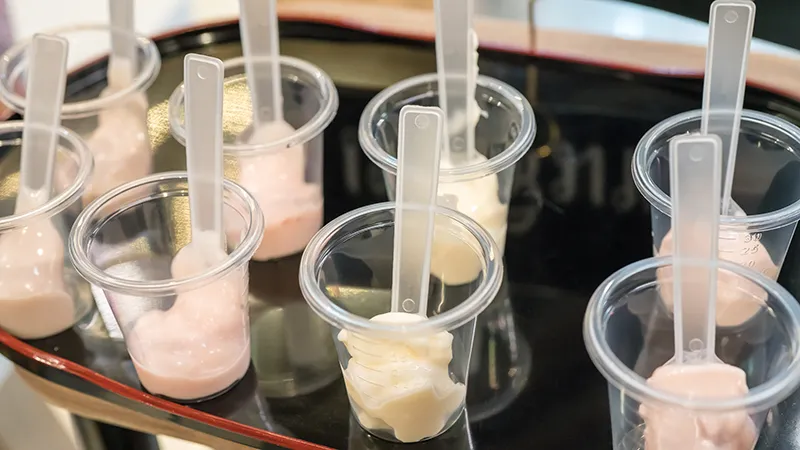Consumer Testing: The Big Questions Answered


Whether you’re launching your first product or refining an established range, consumer testing represents one of the most valuable investments you can make in your product’s future success.
However, while many brands understand that consumer feedback is crucial, questions often pop up about how to implement consumer research effectively. With over 25 years of experience helping brands navigate these decisions, we regularly field questions about best practices, methodologies, and implementation strategies.
So, let’s explore the most common questions about consumer testing to help you understand how this powerful research tool can strengthen your product development process and increase your chances of market success.
Consumer testing involves systematically gathering feedback from your target market about products, concepts, or experiences before making significant business decisions. Unlike internal assessments or expert evaluations, consumer testing captures real-world perspectives from the people who will ultimately decide whether to purchase your product.
This research approach can evaluate virtually any aspect of your offering that influences consumer perception. From initial product concepts through to final formulations and packaging designs, consumer testing provides data-driven insights that remove guesswork from your decision-making process.
The key difference between consumer testing and other research methods lies in its focus on your actual target market. Rather than relying on assumptions or expert opinions, you’re gathering direct feedback from consumers who represent your intended customer base, ensuring your insights are genuinely relevant to commercial success.

Consumer testing significantly reduces the risk of product failure by identifying issues and opportunities before you’ve committed substantial resources to production and marketing. Research consistently shows that products developed with comprehensive consumer input achieve higher success rates than those developed without this validation.
The methodology helps you understand not just whether consumers like your product, but specifically why they respond the way they do. This deeper insight enables targeted improvements that can transform good products into market leaders, whilst avoiding costly mistakes that might otherwise become apparent only after launch.
Consumer testing can also provide competitive intelligence by revealing how your product performs against existing market options. This comparative consumer research helps identify opportunities for differentiation and guides positioning strategies that can give you genuine marketplace advantages.
Perhaps most importantly, consumer testing builds confidence in your business decisions. When you have solid data showing that your target market responds positively to your product, you can invest in production and marketing with greater certainty of success.

Several consumer testing methodologies can provide valuable insights, each suited to different research objectives and product characteristics.
The timing of your consumer testing can significantly impact its value to your development process. Early-stage testing during concept development helps validate ideas before substantial investment, whilst pre-launch testing provides final validation and optimisation opportunities.
Consumer testing during product development allows you to refine formulations, packaging, and positioning based on real consumer feedback. This iterative approach often leads to significantly stronger final products than development processes that rely solely on internal decision-making.
Post-launch consumer testing helps monitor product performance and identify opportunities for ongoing improvement. Markets and consumer preferences constantly evolve, making regular testing essential for maintaining competitive positioning over time.
For established products, consumer testing can also guide reformulation efforts when ingredients, costs, or regulations require changes. This ensures modifications don’t negatively impact consumer acceptance whilst potentially identifying opportunities for enhancement.

Selecting the most appropriate consumer testing methodology depends on your specific research objectives, product characteristics, and practical considerations like timeline and budget.
Product acceptance testing works well when you need to understand overall consumer response to new or modified products. This approach provides clear feedback on commercial viability and helps prioritise development resources.
Conversely, product benchmarking proves valuable when you want to understand how your product performs against competitive alternatives. This comparative approach often reveals specific areas where your product excels or needs improvement relative to market standards.
For products where sensory experience drives preference, combining consumer taste testing with sensory profiling can provide powerful insights. This approach helps identify not just what consumers prefer, but specifically why they prefer it, enabling precise product optimisation.
The key lies in aligning your methodology with your specific questions. Clear research objectives should guide every aspect of your testing approach, from participant recruitment through to analysis and interpretation.
Understanding how consumers truly perceive and respond to your products removes uncertainty from development decisions and significantly increases your chances of market success.
At Wirral Sensory Services, we’ve spent nearly three decades helping brands understand their consumers through comprehensive research methodologies. Our consumer testing services combine rigorous scientific approaches with a practical commercial focus, delivering insights that translate directly into business success.
Whether you’re developing new products, refining existing offerings, or exploring market opportunities, our experienced team can design and execute consumer testing programmes that provide the clarity and confidence you need for informed decision-making.
Our comprehensive capabilities include taste testing, home use testing, central location tests, and specialist research approaches tailored to your specific industry and objectives. With access to one of the UK’s largest consumer databases and state-of-the-art testing facilities, we can deliver both small-scale targeted studies and large-scale market validation projects.
If you’re ready to strengthen your product development process with professional consumer testing, contact our team today at +44 (0)151 346 2999 or email info@wssintl.com to discuss how our expertise can support your success.